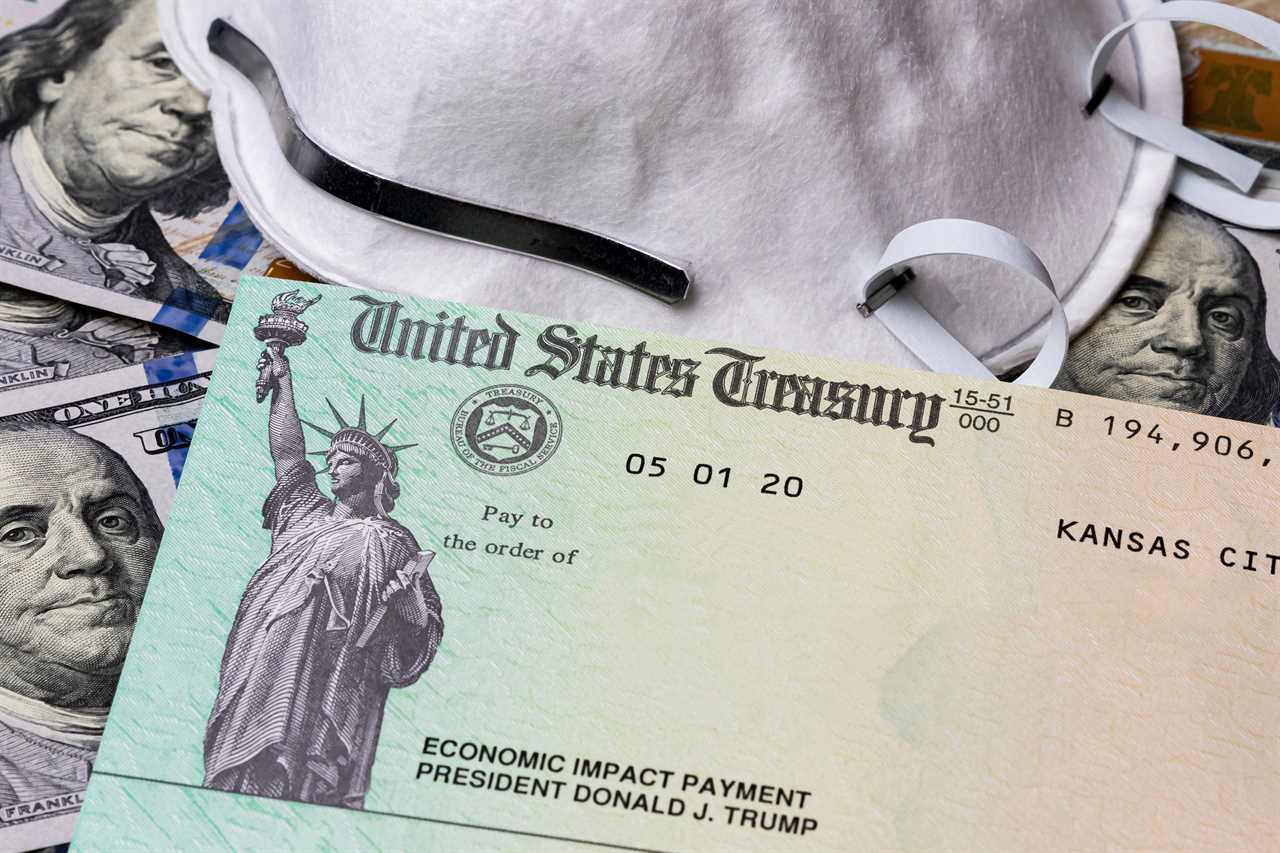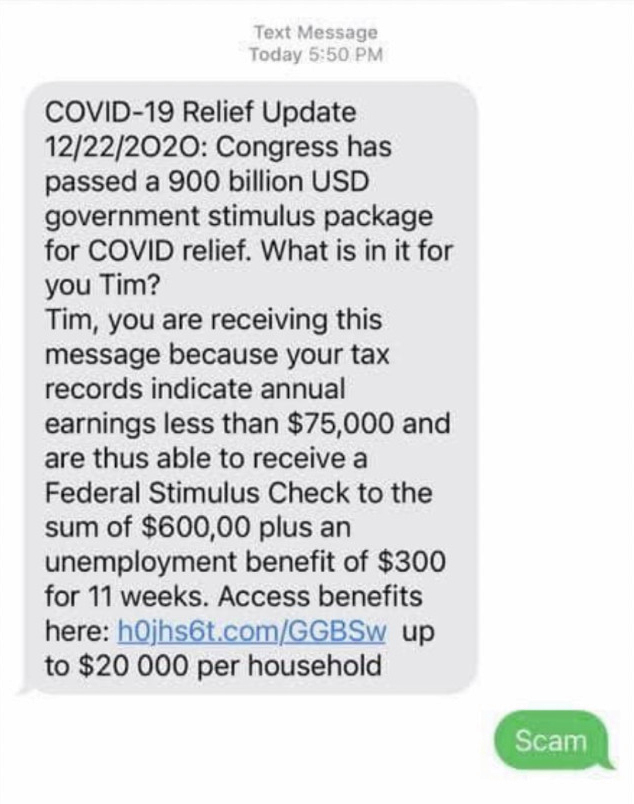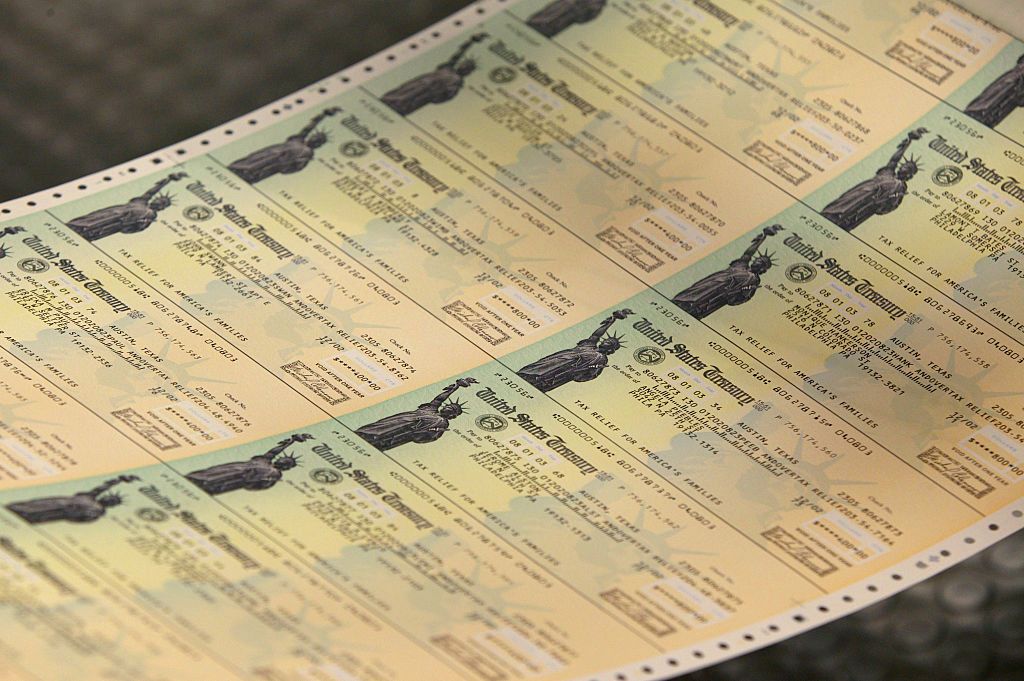A WARNING has been issued over scam texts and fake stimulus checks as millions of relief payments have been delayed.
The Federal Trade Commission (FTC) revealed more than $211million was collectively lost by Americans to stimulus check fraud and coronavirus scams.
* Read our US Politics live blog for the latest news on Joe Biden, Donald Trump and Wednesday’s inauguration


It comes as people across the United States are dealing with stimulus check delays.
A WSPA viewer revealed a fraudulent text message they received on December 22, 2020, the news outlet reported.
The text read: “COVID-19 Relief Update 12/22/2020: Congress has passed a 900 billion USD government stimulus package for COVID relief.
“What is in it for you Tim? Tim, you are receiving this message because your tax records indicate annual earnings less than $75,000 and are thus able to receive a Federal Stimulus Check to the sum of $600,00 plus an unemployment benefit of $300 for 11 weeks.”
At the bottom of the scam text is a clickable link.
‘IT LOOKS REAL’
Referring to check scams, the Better Business Bureau of the Upstate’s Vee Daniels told WSPA: “Basically they send you a fraudulent check, the scammers do, and you think it’s real because it looks real and you actually take it to the bank and cash it.
“And a couple of days later they’re following up with you to tell you that they have paid you more than you’re supposed to get and you have to send them this money back.”
However, the banks would end up bouncing a few days after the deposit.
Another way scammers can trick Americans is by trying to make them pay a fee to obtain their check.
For anyone who has yet to obtain their stimulus checks, these are the seven reasons it’s not arrived.

In April 2020, the Federal Trade Commission revealed several tips for avoiding a Covid relief payment scam.
The FTC urged Americans to ignore texts, emails, or calls about stimulus checks from the government.
According to the FTC, irs.gov/coronavirus. is the only place tax payers should submit information to the IRS is: irs.gov/coronavirus.
The IRS will not contact anyone “by phone, email, text message, or social media with information about your stimulus payment, or to ask you for your Social Security number, bank account, or government benefits debit card account number.”
SCAM ALERT
“Anyone who does is a scammer phishing for your information,” the FTC website stated.
“You don’t have to pay to get your stimulus money.
“The IRS won’t tell you to deposit your stimulus check then send them money back because they paid you more than they owed you. That’s a fake check scam.”
Scams should be reported to the Federal Trade Commission at ftc.gov/complaint.
‘NO TIME TO WASTE’
Meanwhile, a third round of stimulus checks – worth $1,4000 – could be agreed on this week and sent out “immediately.”
As Joe Biden detailed his new $1.9trillion Covid relief plan on Thursday, insisted: “There’s no time to waste.”
The new plan includes a third round of $1,400 stimulus checks, following last month’s $600 deposit.
Both Biden and outgoing President Trump said that they believed Americans should receive $2,000 checks.
“We will finish the job of getting a total of $2,000 in cash relief to people who need it the most,” Biden said on Thursday.
“The $600 already appropriated is simply not enough. You just have to choose between paying rent and putting food on the table.”
The House is expected to start working on the plan this week, before Biden is sworn in on Wednesday and the Senate is seated on Friday.






